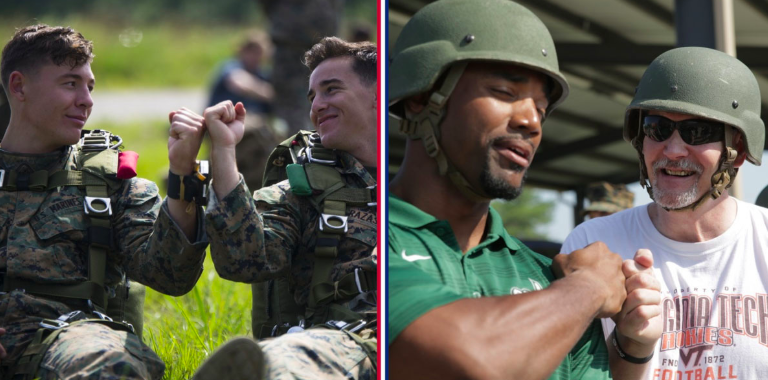Friendship within the ranks is the glue that holds a unit together.
It doesn’t matter who a person is, where they’re from or what their personal hobbies are—friendships forged in the suck become stronger than anyone can imagine.
It isn’t much of a stretch to say that troops in the same unit become closer than family—but all good things must come to an end. Contracts expire, retirement ceremonies are held and DD-214s are filled out. Those veterans then go forth to find their new family—which is no easy task.
These are troops who spent years of their lives knowing that even the guys they were only kind of close to were willing to die for them—and vice versa. It’s a lifestyle that makes loyalty a top-shelf virtue. So, if you’re a part of the civilian world and you’ve managed to fill the role of a veteran’s “good friend,” know that they’ve got your back.
It should be noted that, of course, every veteran is different—and it really depends on how close you are with your veteran friend. But, generally, they’ll offer to help you out in these ways:
1.) They don’t care about the majority’s opinion—just the trust of a few
Social norms are laughable to most veterans. As long as something doesn’t put anyone in serious danger (other than the veteran if it means there’s a laugh or two to be had, of course), they’ll most likely do it.
If you’re too scared to go talk to that someone who’s grabbed your eye at the bar, veterans really don’t give a sh*t about being embarrassed. They’ll make sure you get their number as long as you make them proud by having a good night.

Or you could buy them a beer. That always works.
(US Air Force)









